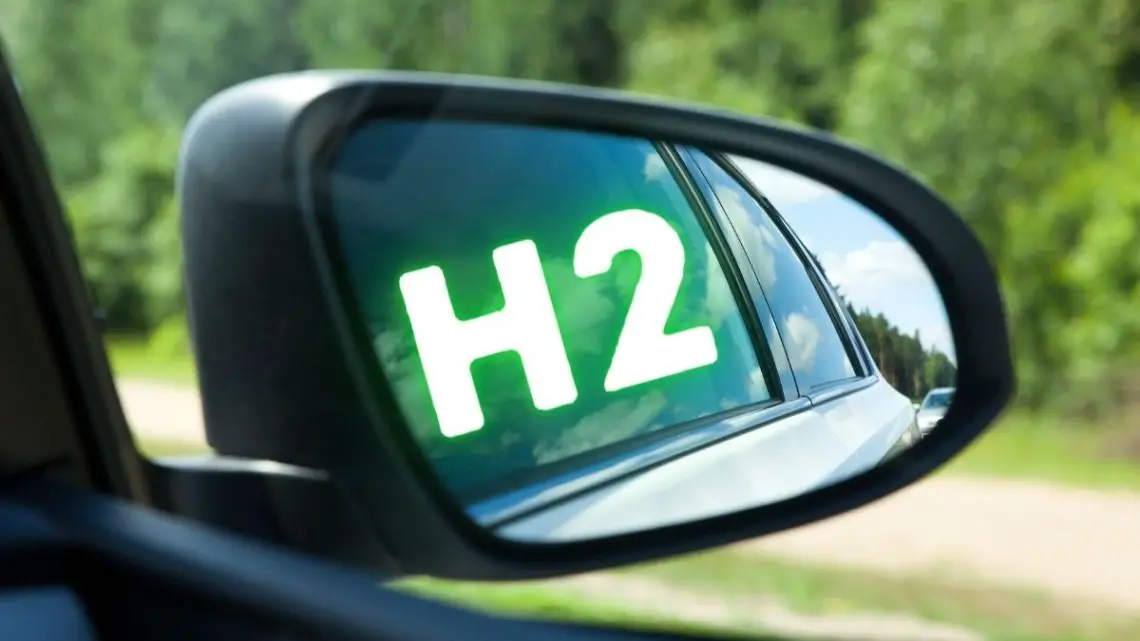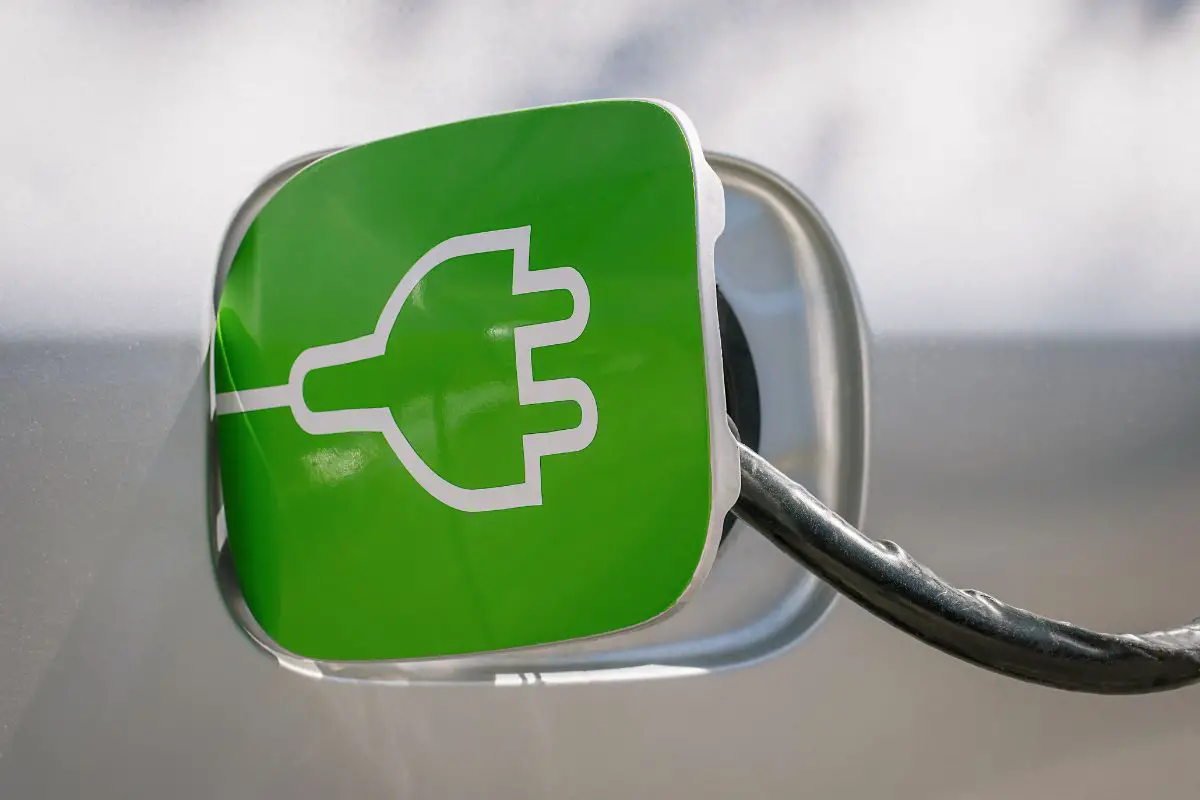
Why hydrogen cars still make sense despite energy loss
December 29, 2022Some consumers are questioning the value of H2 vehicles when EVs plug in and charge directly.
When comparing hydrogen cars and battery electric vehicles, many people wonder why anyone would choose an H2 option when fuel cell vehicles suffer energy loss.
All vehicles experience energy loss, including internal combustion engines, electrics and H2-powered.
Energy is lost no matter what type of vehicle is driven. It’s easy to assume that an electric vehicle would not be included in that group, as it uses electricity directly from the grid. However, an electric vehicle’s drive system still experiences an energy loss of between 15 percent and 20 percent.

Comparatively, a gasoline-powered internal combustion engine experiences a much higher 64 percent to 75 percent energy loss, according to US Environmental Protection Agency (EPA) data. Fuel cell vehicles experience an energy loss of somewhere between 40 percent and 60 percent, though that technology is rapidly evolving, and efficiency levels are improving, according to the California Hydrogen Business Council.
Energy loss in a hydrogen car is partly offset by its energy storage capacity using renewable electricity.
As important as energy loss most certainly is, there are many other factors that determine whether a vehicle – even one that has zero-emission operations, like a hydrogen car or EV – is truly environmentally friendly and makes the anticipated difference in reducing carbon emissions to combat climate change.
For instance, in deciding whether battery electric vehicles or hydrogen cars are better for the environment, it is vital to consider how the electricity or hydrogen fuel is produced. After all, both can be produced by burning coal or natural gas with unabated greenhouse gas emissions. In those cases, the electricity or H2 still contribute to emission levels, even if it is not occurring within its end use in powering a vehicle.
An electric vehicle could only consider itself truly CO2 emission-free if it was powered by electricity generated by renewable sources such as solar and wind. Similarly, only green H2 produced using electrolyzers powered by renewable energy such as solar and wind would mean that operating a hydrogen car is truly clean.
When using renewables, storing the energy as H2 can help to ensure a steady supply of fuel, as reliability of sunny days, windy days, and the limitations of availability (such as the lack of solar power production at night) can mean that even if energy loss does occur, it takes advantage of any renewable electricity produced but that is not immediately used and would otherwise be lost altogether.
In conclusion, hydrogen-powered cars offer superior sustainability mainly due to no long-term mining involved or large battery waste/recycling, evolving green production development, storage capability and zero emissions. H2 vehicles also offer many benefits to consumers, such as quieter operation due to fewer vibrations from the fuel cell, and much faster refueling times compared to electric vehicles. This makes them an attractive option for those looking for a vehicle that provides both convenience and environmental sustainability.
HYDROGEN POLL: Cost and infrastructure aside, are you ready to use hydrogen as a source of fuel for home heating?[forminator_poll id=”56493″]



 With over 15 years of reporting hydrogen news, we are your premier source for the latest updates and insights in hydrogen and renewable energy.
With over 15 years of reporting hydrogen news, we are your premier source for the latest updates and insights in hydrogen and renewable energy.
For about 10 years I’ve been saying that one day, most of our transportation power will be from hydrogen. Hopefully sooner rather than later, but it is a long way off. The energy loss is more severe than this article makes clear. First there is the loss in creating the hydrogen. Then the loss in powering the car. There will also be losses in transporting the hydrogen to the filling station (when compared with electricity). The article says to be green it has to be from wind or solar, but I believe that the huge amounts of wasted power at night from hydro and nuclear can be directed towards producing hydrogen.
All true, but also there are losses in producing electricity and all other present energy sources that have to be taken into account for a clearer picture. We will get there sooner than latter, I believe. 😉
Hydrogen powered vehicles with use of fuel cells to generate electricity and then storing it in battery and then drive the vehicle is somewhat similar to EV. As I ùnderstand both are EVs. Then why not use electricity directly from grid as like EV does. Electricity from grid is readily available and has open access for users in everyday life which I feel should be less cumbersome in adoption. The only problem is development of cheaper and user-friendly suitable battery.Which is in process by various researchers and equally painful as developing the suitable fuel cells. Can anybody correct me if I am wrong and give opinion on my view? Please revert.
Why you don’t use hydrogen fracturing technology as Stanley Mayer dose and produce the fuel in board on demand?
Hi to everyone
Can any one explain the hydrogen fracturing technology used by Stanley Mayer.
Best regards
I’ve heard the infrastructure for requiring a neighborhood to be required with thicker gauge wire to handle the increased power needs is no small project.. it’s ok for now because only a few people are drawing from the grid for their new electric cars
The only problem with the famous battery (NiCd) is limited sources of precious metal and disposal of battery and the production quality particularly in developing countries
As regards comparison of EV and H2 Fuel cell cars is the operation cost competitiveness and wastage of sources though basic sources are sun and wind but the all over cost includes manufacturing , storage, transportation and operational cost and life and disposal of final using device and operational safety. Once final evaluation is arrived at and that too commercial production stage is reached , it will be easy to decide.
At present the choice is open
Fuel Cell vehicles can run directly from stored H2 and don’t necessarily require a battery. Though batteries are fitted, they’re a 1/10th the size if not smaller than that of an EV. So for every 1m EV cars, 10m FC cars could be made. The mining of minerals to produce EV only vehicles and/or grid storage for electricity is not sustainable. There’s simply not enough minerals on this Planet. Long term, generating electricity and storing it, running EVs only, doesn’t work. Also, the demand on the grid for EV only will bring the grid to a halt. We’re already seeing electricity companies trying to get consumers to use appliances and ev charging over night only. The cost of charging is also too high and will continue to increase as demand Increases and supply cannot keep up.
H2 offers an additional option which can run in parallel to electricity. Wind/Solar generated H2 can be stored in gas containers. Advances in technology means H2 storage and pipelines are now available. Any fuel goes bang, whether it’s natural gas or petrol. H2 is no different. All fuels have the required safety regulations in place.
The argument of efficiency isn’t an issue. The planet has an unending supply of water, wind and solar. With H2, we’re splitting the water using sun and wind, then through fuel cells to create electricity, converting the H2 and Oxygen, back into water. We’re only then using raw materials to store and distribute the H2, the materials for which are sustainable long term. Technology advancement means leakage also isn’t an issue anymore. Fuel cell materials can be recycled using existing recycling processes.
The reason H2 hasn’t taken off yet is one of infrastructure. Car makers and home energy suppliers aren’t increasing supply because the governments won’t invest in a H2 infrastructure. Equally, governments won’t invest because the products aren’t there. This isn’t the case in Germany, Korea, China and Japan. These countries are poring billions into H2 infrastructure. The UK will be left behind. We need H2 infrastructure now. We did it with the UKs fibre network a few decades ago. We all remember the rural roadsides, urban pavements and roads being dug up. The same can be done with an H2 infrastructure.
H2 internal combustion engines are not the answer and I hope are simply a stepping stone. Please do not buy these. They release nitrogen oxides into the atmosphere which will add to global warming. Burning anything releases pollution. Fuel cells use chemical reaction. Drinking Water is the only waste material.
Ideally, I’d like a h2 fuel cell in my car and a h2 fuel cell in place of my boiler at home. The fuel cell boiler then uses the heat from the chemical reaction for radiators and water, whilst the electricity powers the home and any unused goes back into the grid. Well that’s my ideal solution anyway. Thanks for reading.
Yes.
100% That is literally the perfect explanation of why FCEV’S are the future. Sadly, I think you’re also correct about the U.K falling behind the EU and Asia. But, now over two dozen automakers are diving head first into hydrogen for later this decade so hopefully that will force the issue of investment in the U.K. In the end, I think it’s clear that FCEV’S are on their way and once they’re here, they’ll take over the “green energy” vehicle sector.
Great Answer! One of the best I’ve seen on the subject.
Yes. Excellent explaining. Need to be shared wisely. Thank you.
The energy loss argument has always been a stupid argument. When talking to EV folks they always reply that battery technology will improve over time. With small modular reactors, fusion, and whatever else is on the horizon, so too will huge sources (i.e. surpluses) of energy.
Hydrogen is the perfect fuel because it can be used for virtually everything, unlike EVs. H2 can power your home, your car, ships, and planes. And with H2 paste or cartridges, the distribution issue should also go away.
100% The other big thing is range. FCEV’S will always be able to get superior range. BEV people always say “Well, batteries are getting better and will be able to have long ranges too”. Problem is, their “long ranges” is 600 miles which is nothing compared to what VW and Toyota will be releasing for fuel cells in the next 5-8 years. Plus, fuel cells take 5 minutes to fill which you cannot do in a BEV. Now there’s over two dozen automakers preparing FCEV’S for later this decade, with some like BMW saying they’ll end BEV development by 2030, I think it’s clear. The infrastructure is coming, the FCEV’S will be here in mass later this decade, FCEV’S are the evolution. It’s just a matter of time.
Hydrogen. When produced using green method the losses virtually disappear if your power source is solar or wind it simply is a matter of having enough infrastructure to harness the extra energy that is in total abundance green and free. What no one is saying here is the beauty of its storage capabilities. PURE Hydrogen is pure pollution free energy. As long as your storage vessel doesn’t leak you can come back to it months later, years later and 100% of the energy is still there. Batteries dissipate with time they are not viable for long term not even extended short term. If you give Hydrogen 5 years of full on r&d like batteries and petroleum have been honored with you would see those efficiencies improve. Look at NASA they have known all along they just don’t talk about it much all space missions have utilized heavily in Hydrogen including the fuel to get the rocket off the ground. Hydrogen the fuel of the future.
I wish articles on hydrogen as a fuel would clearly distinguish combustion or fuel cell (or other?) application. Our evolving energy and power solutions will be a mosaic of techniques, and for the example of motor vehicles, rechargeable batteries or hydrogen-oxygen fuel cells (or combustion? or something else) will be among the improvements, depending on personal vehicles, fleets, rail locomotives, or whatever. Clearly indicating the hydrogen application as we inform ourselves about the evolving energy applications will take out a lot of the cheerleading and better inform us all. Thanks.
Solar mirror dish in Odeon, France up in the Pyrenees producing 6,000 degree F temps since the early 70’s. Should be able to get H from water. ICE components need strength enhancement, but engineering will handle that.
Imagine not sending tanks of oil across our oceans containing much of our food supply. The global challenge will be recognizing artificial bottlenecks and avoiding them. Truth will matter in the future discussions.
I wonder why hydro power is never listed in these articles as a “renewable” source of energy. In the province where I live 97% of the electricity is hydroelectricity.
It is a delight to see a lively discussion at last between non experts, like myself! Two points I would like to add. The earth has , I understand massive amounts of Lithium. Problem is getting to the ‘purification ‘ process. Until recently this was rather mucky and toxic. In the last couple of years an Ausi miner and A Korean Uni have developed a novel process to get round the problems cheaply. I was sad that at the time buying shares was not possible! Also, several recycling companies are setting up in the west- they depend of course in getting material economically to them. Auto recycling of NCd has also been proved possible and theoretically economic I understand, but this suffers even more from the collection problem.
I look forward to the day when Don Quiote will no longer have to charge that old can not be done for love or money argument.
Why wait? Do it now!
The biggest problem with the electrification of America and the world is its terrible storage capabilities and its susceptibility to natural and human-made disasters. Consider a large solar flare hitting directly on North America, everything that requires electricity will be inoperable for months resulting in chaos and death. Even batteries capable of storing electricity for several weeks will be fried. Are we prepared for this type of event? Should it be a priority by our leaders? Should we consider alternative energy sources as a solution and begin to move away from short-term electrical storage systems? Recent technological advances occurring with hydrogen appear to be making advances that could change everything such as solid hydrogen. With near limitless H2 availability and advances in H2 technology, long-term storage capacity, and the onset of nuclear fusion for H2 production it makes sense to commit to H2 as a primary energy source worldwide. Reliable and sustainable energy is the foundation of liberty and the pursuit of happiness.
In August 2021 a Toyota Mirai was driven for 845 miles on 5,650 grams of hydrogen. That’s less than 6.7 grams per mile or 223 watt hours per gram (6.7 * 33.333 = 223.33) which is probably a bit more efficient than gasoline or diesel.